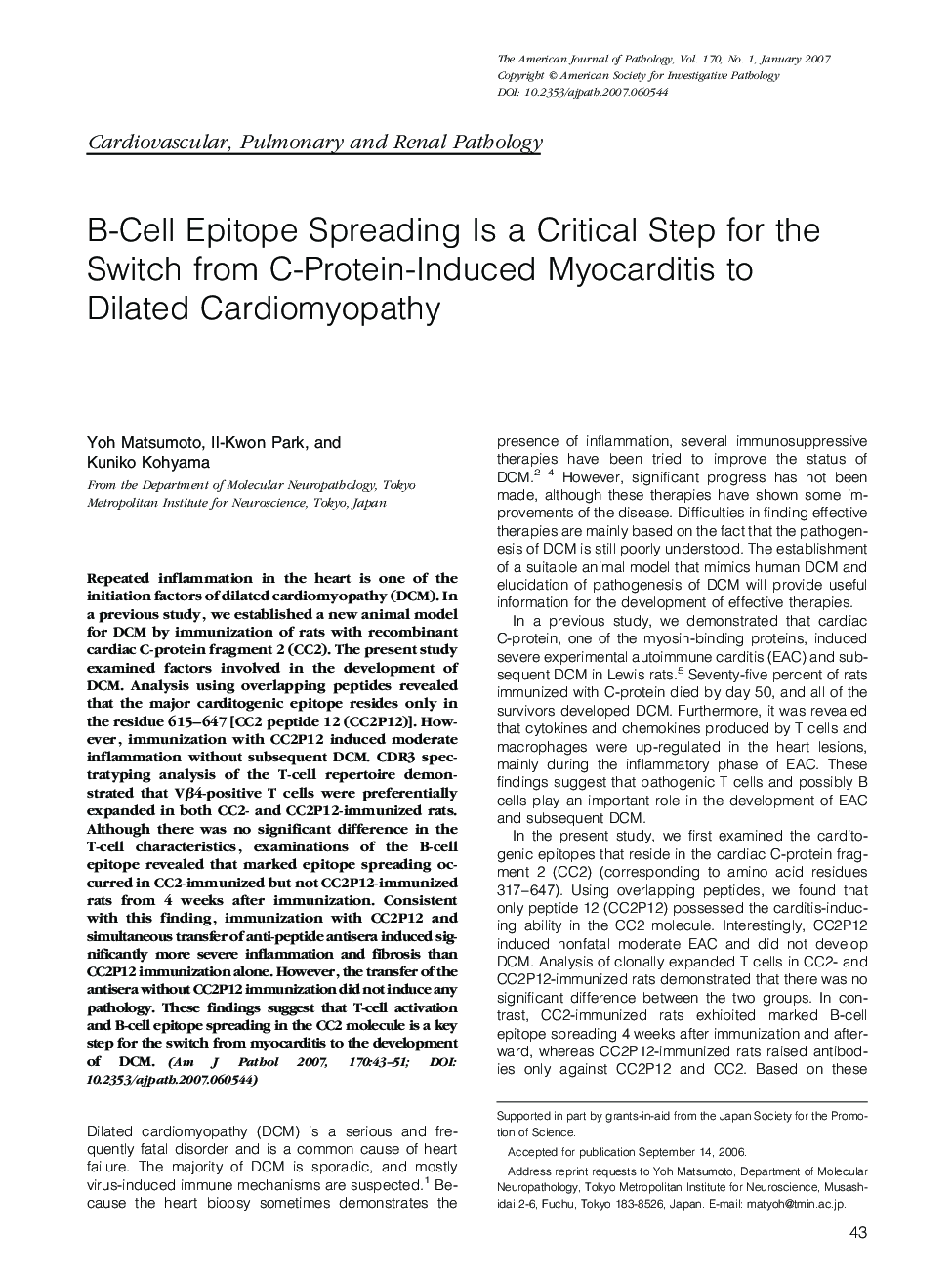| Article ID | Journal | Published Year | Pages | File Type |
|---|---|---|---|---|
| 2866167 | The American Journal of Pathology | 2007 | 9 Pages |
Repeated inflammation in the heart is one of the initiation factors of dilated cardiomyopathy (DCM). In a previous study, we established a new animal model for DCM by immunization of rats with recombinant cardiac C-protein fragment 2 (CC2). The present study examined factors involved in the development of DCM. Analysis using overlapping peptides revealed that the major carditogenic epitope resides only in the residue 615–647 [CC2 peptide 12 (CC2P12)]. However, immunization with CC2P12 induced moderate inflammation without subsequent DCM. CDR3 spectratyping analysis of the T-cell repertoire demonstrated that Vβ4-positive T cells were preferentially expanded in both CC2- and CC2P12-immunized rats. Although there was no significant difference in the T-cell characteristics, examinations of the B-cell epitope revealed that marked epitope spreading occurred in CC2-immunized but not CC2P12-immunized rats from 4 weeks after immunization. Consistent with this finding, immunization with CC2P12 and simultaneous transfer of anti-peptide antisera induced significantly more severe inflammation and fibrosis than CC2P12 immunization alone. However, the transfer of the antisera without CC2P12 immunization did not induce any pathology. These findings suggest that T-cell activation and B-cell epitope spreading in the CC2 molecule is a key step for the switch from myocarditis to the development of DCM.
